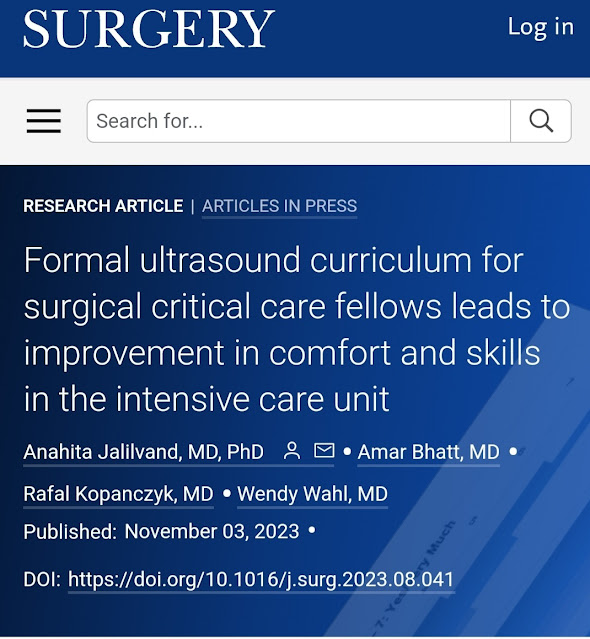Abstract
Background
Despite its importance, there are no official guidelines for point of care ultrasound training during surgical critical care fellowship. The primary objective of this study was to evaluate the comfort and competency of fellows after implementation of a point of care ultrasound program.
Methods
Surgical critical care fellows (n = 7) participated in an ultrasound rotation (2021–2022), including dedicated lectures and training with interventional and echocardiography technicians. Pre and post self-assessments were administered evaluating comfort in point of care ultrasound for focused assessment with sonography for trauma, vascular access, drainage procedures, volume status, cardiac activity during arrest, and global cardiac function. Technicians assessed fellow skill in probe orientation, location, image manipulation, machine adjustment, and image quality. All questions were answered on a 7-point Likert scale (1, not-at-all; 7, yes/very much). Pre and post cohorts were compared using Wilcoxon signed-rank tests.
Results
After the rotation, fellows reported improvement in comfort level for ultrasound-guided technique for focused assessment with sonography for trauma, drainage procedures, volume status, and cardiac assessment. Technician evaluations demonstrated improvement in probe orientation (5 [4–6] vs 7 [7–7], P = .02) and location (5 [3–6] vs 7 [7–7], P = .02), image manipulation (5 [4–5] vs 7 [7–7], P = .02), machine adjustment (5 [4–5] vs 7 [7–7], P = .02), and overall image quality (4 [4–6] vs 7 [7–7], P = .02) after the rotation. All fellows reported the course significantly improved their skill, comfort level, and was worthwhile.
Conclusion
All fellows exhibited significant improvement in skill and comfort with point of care ultrasound after this rotation. This is the first study to describe a dedicated ultrasound curriculum for surgical critical care with significant skill acquisition.


Không có nhận xét nào:
Đăng nhận xét